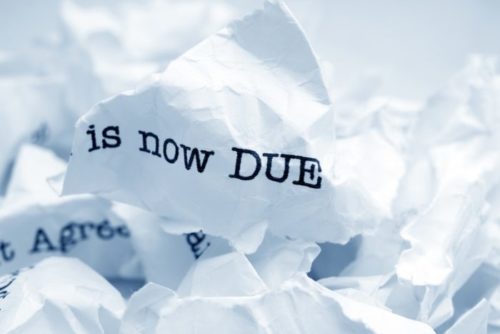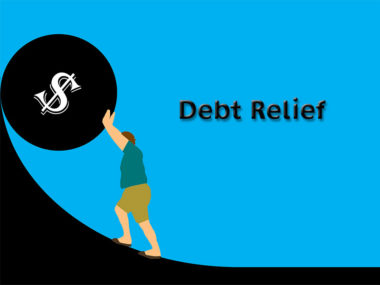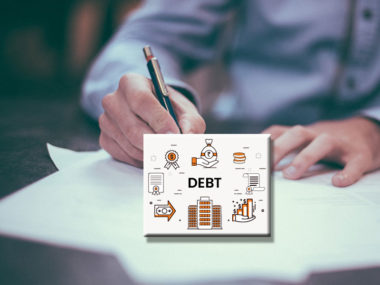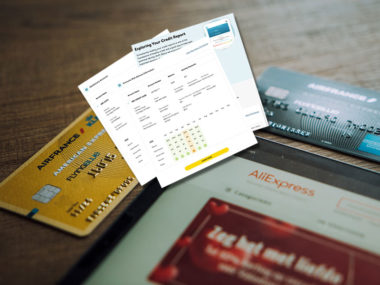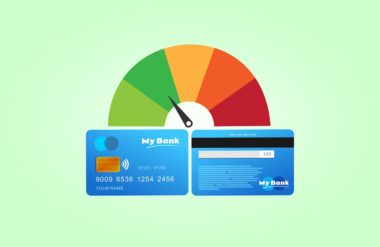When you sign a loan agreement, you have every intention of making your monthly payments in full and on time. However, if your financial situation changes and you can no longer afford your monthly payments, you may begin to skip them to cover other expenses.
When you miss a loan payment, your loan is considered delinquent. The lender may allow you a grace period to catch up on your loan payment. However, if you continue to miss these payments, you may receive a notice of default. This means the lender could pursue additional action against you for failing to adhere to the initial loan agreement.
Another way your loan can go into default is if you make consistently late payments. When you agreed to your loan, your lender laid out the specific terms on late or missed payments. The consequences you face for defaulting depend on the loan type and lender. Knowing what your lender constitutes as defaulting on your loan and the consequences you could face in default will help you prepare for your financial future.
Table of Contents
What Happens When You Default on a Loan?
No matter what type of loan you have, if you’re late on payments or miss payments, your loan can go into default. When your loan goes into default, your credit score takes a hit, which can negatively impact your financial future.
Your lender could turn your loan over to a debt collection agency that’s focused on retrieving the unpaid debt as soon as possible. A defaulted loan could also lead to the repossession of your personal property.
Personal Loans
If you take out a secured personal loan and it goes into default, the lender has the authority to seize your assets or personal property. For example, if you took out a personal loan to pay for a jet ski or recreational vehicle, the lender can take possession of the item if you fail to pay.
With an unsecured personal loan, you didn’t put up any collateral for the lender. Therefore, if you go into default, the lender must take some other type of action against you to get their money back. The lender may file a lawsuit or garnish your wages to eventually collect the debt you owe.
Auto Loans
When you apply for a car loan, it’s important to review the terms of the loan. Most auto lenders are willing to work with borrowers who default on their loans. However, since an auto loan is a secured loan, the vehicle itself is the loan collateral. If you default on this loan, the lender has the right to take possession of the vehicle.
Vehicle value depreciates quickly and selling a vehicle could be a hassle for the lender. Therefore, auto loan providers usually only turn to car repossession if the borrower isn’t willing to work out a payment plan to catch up on missed loan payments.
Mortgages
A mortgage is another type of secured loan that uses the purchased home as collateral. If you default on your home loan, you’ll go into foreclosure and the lender will eventually take over ownership of the home and sell it to recoup their losses.
Credit Cards
Most credit card companies have lenient default policies and you may not be placed into default until you’ve missed several payments. The reason these lenders can wait so long to enforce consequences is that they usually charge hefty late payment fees.
When you don’t make payments on credit card debt, your balance also accrues interest. Due to this interest and late fees, your balance continues to increase the longer you don’t address this debt. When debt collection agencies get involved, they can become aggressive at attempting to collect the money you owe.
Other Debts
The consequences of defaulting on other loans may vary, depending on the agreement you made with the lender. If you default on a student loan, the lender may send your debt to a collection agency or garnish your wages. If you default on a business loan, the lender may seize your property and the default could negatively impact your personal credit score.
If you default on federal or state taxes, the Internal Revenue Service (IRS) intercepts your tax refunds until the debt is paid off. In most cases, the IRS won’t pursue legal action against you for taxes you owe. However, if you default on child support or alimony, you could face criminal charges and you may even be ordered to serve jail time.
Other Financial Consequences of Defaulting on a Loan
When you default on any type of loan, you face financial consequences that can stick with you for years. Loan default is recorded on your credit report and lowers your credit score. This affects your creditworthiness and ability to qualify for loans in the future. It can take a while to repair your credit after a defaulted loan is reported.
If your defaulted loan is sent to a debt collection agency or legal action is pursued, your wages may be garnished or personal property repossessed. If the lender wins a lawsuit, they may gain access to your bank account funds. Your federal tax refund may also be intercepted if you default on federal debt, such as taxes or student loans.
How to Get Out of Default
If you find your loan heading toward default, it’s possible to stop it before you face negative legal or financial consequences. If you find yourself getting behind on payments, it’s important to invest your time and effort to:
- Explore a new payment plan: Talk to your lender about an alternative payment plan that’s more affordable for you. For credit card debt, consider consolidating your debt. If you’re behind on your mortgage, look into your refinancing options.
- Agree on a settlement: If you can’t catch up on your payments and your debt continues to accumulate, it’s important to pay it off as soon as possible. Your lender may be willing to agree to a settlement that eliminates some of your debt, making it easier for you to catch up on payments.
- Repair your credit: If you defaulted on a loan or your debt has accumulated, focus on increasing your credit score. Since your credit score affects your ability to borrow money in the future, implementing good financial habits now will help to raise your score and mitigate the damage after you’ve defaulted.
The best way to prevent dealing with the severe consequences of a default is to avoid defaulting on your loan completely. If you find yourself becoming delinquent on payments, talk to your lender immediately. An open line of communication will help you better understand your options and show the lender you’re being proactive about paying off your debt.
Image Source: https://depositphotos.com/
